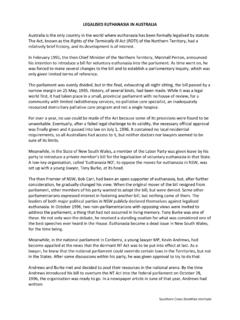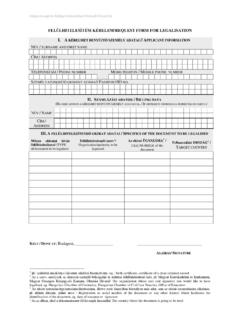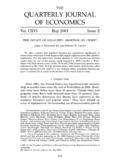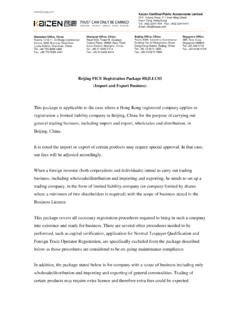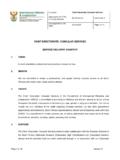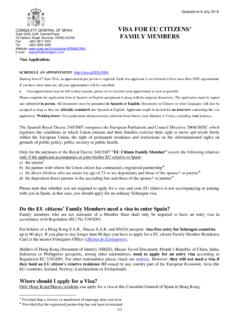Transcription of TAKING PRESCRIBED MEDICATION INTO RUSSIA - …
1 TAKING PRESCRIBED MEDICATION into RUSSIA In June 2016, legislation was introduced requiring travellers bringing PRESCRIBED medicines into RUSSIA to carry a prescription in the traveller s name, plus the name of the drug and PRESCRIBED quantity. If this isn t in Russian, a notarised translation is also required. Some medicines which you can buy over the counter in the UK may require a prescription in RUSSIA . Check with the nearest Russian Embassy if you re unsure whether you need a prescription to bring your medicines into the country. The article in a Russian online newspaper gives more detail. Anti-depressants would require you to follow the advice below, as would opiates, but many prescription medicines would not, according to this information.
2 Jelena Williams-Poznjakova from Birmingham University has found the following links: They refer to a previous regulation from 2007. If you think your MEDICATION needs permission, the Russian consulate in London and the FCO have confirmed that for your documents (the prescription and the required translation) to be valid in RUSSIA , you must observe the following process: 1. Have the prescription certified by a solicitor 2. Have the certified prescription legalised by the Legalisation Office of the FCO 3. Have BOTH the certified prescription AND the Apostille certificate ( the proof that the document has been legalised by the FCO) translated from English into Russian by a professional translator 4. Have the translations notarised by the Russian Notary at the Consular Section of the Russian Embassy.
3 Here's some information about how to satisfy the requirements outlined above: 1. Have the prescription certified by a solicitor Any solicitor should be able to certify your prescription for a small charge (which will vary from practice to practice). You will need to make an appointment with a solicitor and you should check before attending which additional documents you need to take to the appointment ( as proof of identity). According to the FCO, the solicitor's certification should be written on the prescription itself (not produced as a separate document). 2. Have the certified prescription legalised by the Legalisation Office of the FCO Information about how to have the certified prescription legalised by the FCO can be found here: and you can call their helpline if you have questions about the process.
4 Tel: 03700 00 22 44 (lines are open Monday to Friday, midday to 4pm). As proof that the certified prescription has been legalised , you will receive from the FCO an Apostille certificate. 3. Have BOTH the certified prescription AND the Apostille certificate translated from English into Russian by a professional translator You can locate a translator: a) either through the Chartered Institute of Linguists' Find-a-Linguist directory, here: :norelated&id=167&Itemid=485 Use the following search terms in the directory: Discipline: Translator Source: English Target: Russian Membership grade: Member Specialisations: Medicine b) or through a translation company, a number of which are listed on the website of the Russian embassy here: You can, of course, use other companies, as you prefer.
5 Costs for this service will vary, so you may wish to contact a few different providers to enquire about this. 4. Have the translations notarised by the Russian Notary at the Consular Section of the Russian Embassy The Russian Notary will check that the translations are accurate translations of the original certified prescription and the Apostille certificate, and will then confirm this by notarising them. This stage of the process means that the documents and the translations will be valid in RUSSIA . NB: The documents and translations will NOT be valid in RUSSIA if they are not notarised by the Russian Notary. See information about the Russian Notary here: To have your translations notarised, you need to go in person to the Russian Consulate (either in London or in Edinburgh, as relevant).
6 If you want to go to the London Consulate, you need to make an appointment via the online form on the Embassy's website. Click on the 'Book an Appointment' tab, here: If you want to go to the Edinburgh Consulate ( ), you need to call to make an appointment: +44 (0) 131 225 7098 The charge for notarisation is 20 per page. If you have any questions about the above requirements, you should contact either a) the Russian Consular Information Helpdesk on +44 (0) 203 668 7474 (London) or +44 (0) 131 225 7098 (Edinburgh); or b) the Legalisation Office of the FCO on +44 (0) 3700 00 22 44 (lines are open Monday to Friday, midday to 4pm), as relevant. I cannot stress enough that it is vital that you follow the above advice. If you do not, you could be refused permission to take the MEDICATION into RUSSIA , and may (worst-case scenario) be refused permission to enter the country.
7 You should also begin the process as soon as possible; given all the different stages and organisations it involves, it could take some time.
